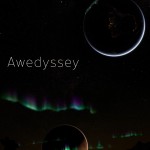
Position:
Professor
Contact:
http://www.med.upenn.edu/uep/faculty_stahn.html
Affiliations:
University of Pennsylvania School of Medicine
Biography
Alexander C. Stahn is an Assistant Professor in the Perelman School of Medicine at the University of Pennsylvania School of Medicine. He obtained his undergraduate and graduate degrees from Freie Universität Berlin, Germany, after which her worked as a Research Assistant at the University of Stellenbosch, Cape Town, from 2003 to 2005. In 2008 he obtained his doctoral degree at Charité – Universitätsmedizin Berlin, Germany. He then assumed the position as a Research Associate at the Karlsruhe Institute of Technology (KIT), Germany, where he was awarded a Young Investigator Grant (YIG) to set up an independent research group in studying the effects of exercise on cognition and brain plasticity. In 2009 he returned to Charité to work as a Research Associate at Charité, where he was promoted to Deputy Laboratory Head at the Center for Space Medicine and Extreme Environments in 2014. In August 2016 he was appointed Assistant Professor of Medical Science in Psychiatry in the Perelman School of Medicine at the University of Pennsylvania (USA). His primary research focuses on the effects of environmental stressors on hippocampal plasticity and spatial cognition.
Research focus
- Effects of spaceflight and environmental stressors (e.g., social isolation) on brain changes, cognitive performance and mental well-being
- Hippocampal plasticity and spatial cognition in extreme environments
- Effectiveness of preventive measures to mitigate negative neurobehavioral risks during spaceflight
- Applying knowledge from space medicine to aging research on Earth
http://charite-in-space.de/stahn/
Projects
Awedyssey: VR for promoting and enhancing well-being
We are investigating and creating a new virtual reality (VR) experience, 'Awedyssey', for the promotion and enhancement of well-being. Today, digital technology pervasively intersects with our daily lives, and VR stands out as a digital tool capable of fostering positive emotion like awe, self-transcendence, and authentic social connection. Connecting with nature is very important for our mental...
SIRIUS - Virtual Earthgazing to mitigate effects of sensory isolation
SIRIUS (Scientific International Research in Unique Terrestrial Station) is a series of on-land isolation experiments modelling long-term spaceflight in order to assess the psychophysiological effects of isolation on a crew and prepare for long-duration spaceflights, such as a trip to Mars. An 8-month-long isolation study commenced in Moscow on Nov 4th, 2021, where a crew of 6 people (from Roscosm...

